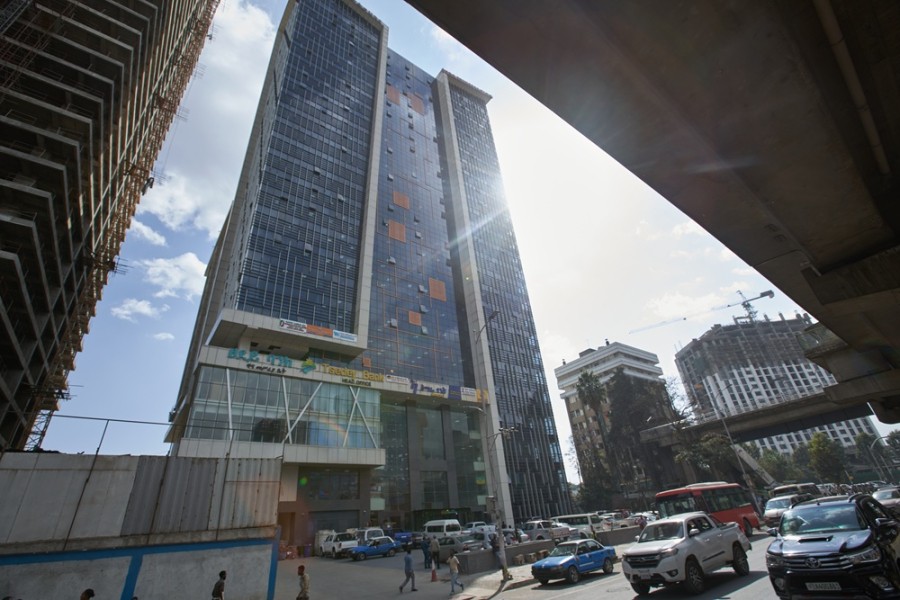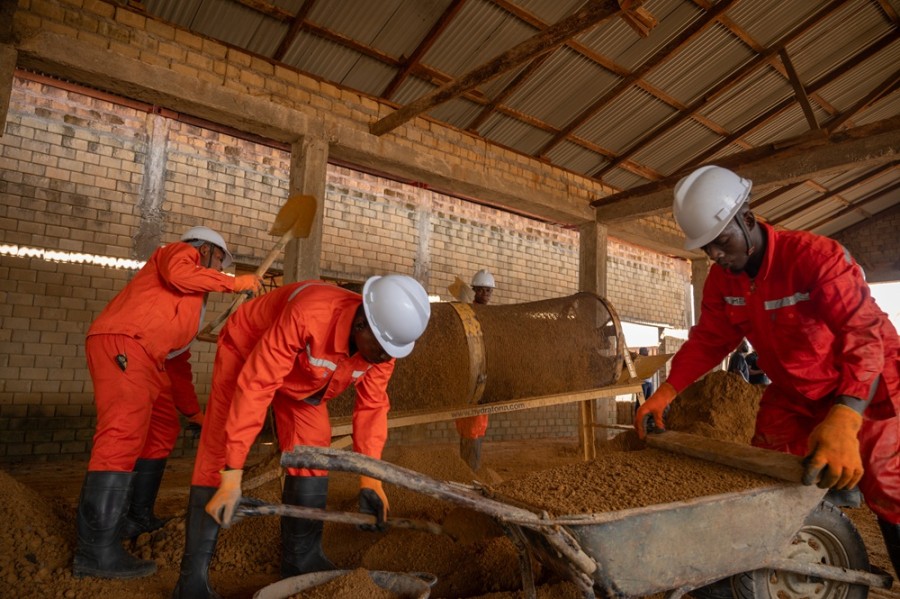


Early lessons from FMO’s market creation journey and what DFIs can do differently.
Across Africa, 80% of SMEs lack access to adequate finance that holds back entrepreneurship, job creation and inclusive development. The estimated SME finance gap is now $330 billion, and this shortfall is the widest in frontier markets[1]. In its latest Foundations for Growth’ publication Reaching small and growing businesses in frontier markets, ARIA highlights the critical role that locally managed SME funds can play in addressing this gap. The report draws on lessons from IPDEV and the Collaborative for Frontier Finance (CFF) – two pioneering models that demonstrate how local funds can effectively reach SMEs and mobilize investment in frontier markets. It challenges DFIs and impact investors to move beyond traditional private equity structures and find new ways to support and channel capital into local funds.
In frontier markets, DFIs and large impact investors have a crucial role to play in bridging financing gaps and investing in the places that need it most. However, many of the barriers and recommendations highlighted in the report cannot currently be addressed only with DFI investment.
In practice, existing DFI mandates and financing instruments make finding investable opportunities in frontier markets challenging. Ticket sizes are often too small, the perceived risk of emerging fund managers remains high, and macroeconomic volatility, currency risk, security and liquidity constraints add further challenges. It requires a new approach to address systemic barriers that constrain DFI investment, and this calls for a shift in mindset and new, purpose-suited types of capital that align to the current needs of the market.

Recognizing these challenges, FMO has made market creation a strategic priority with the goal of addressing barriers that limit DFI investment in underserved markets. Our market creation approach enables us to go beyond the traditional DFI boundaries, leveraging patient and risk tolerant forms of capital to catalyze the types of opportunities identified in the ARIA report alongside addressing barriers in the entrepreneurial ecosystem. It seeks to be highly additional, collaborating with a range of partners and taking a systemic approach to tackling barriers that can unlock DFI investment. Here we share some key insights that shape our market creation ambition, along with early examples of how this is translating into action:
⇒ Catalytic capital and knowledge should target scalable, replicable models. Funding for market creation is scarce and must be directed where it can have the greatest catalytic effect. This means supporting models that can be scaled and replicated to create a demonstration effect on the market. As highlighted in the report, identifying approaches that can unlock pools of local and international capital is essential. And sharing knowledge from these early models – such as IPDEV and CFF do in the report - on what works and what needs to be improved is vital to ensure that market creation efforts can scale, replicate and deliver sustained impact.
| Mobilizing untapped local capital: Ci-Gaba is a pioneering fund-of-funds designed to mobilize local institutional capital for SME investing across West Africa. In Ghana, for example, the pension industry is approximately US$6 billion. While current regulation allows for 25% to be allocated to alternative assets, currently less than 1% is. Ci-Gaba uses catalytic capital to help derisk and crowd in institutional investors that can provide long-term, local currency investment for local SME-focused fund managers. |
⇒ Financial and non-financial tools need to reflect local market realities. Unlocking investment opportunities in frontier markets requires developing the right financial tools - and this requires more than just money. This means deploying flexible, risk-bearing financial products that can support early-stage enterprise growth. Equally critical is tailored non-financial support to strengthen performance, market access and investment readiness. Such early-stage capital and support are best delivered via intermediaries that are agile, cost-efficient, deeply embedded in local context and can pull in DFI capital at the right time.
| Strength in local hands: The Village Capital Africa Ecosystem Catalyst Facility, funded by FMO and the Netherlands Enterprise Agency (RVO), is designed to strengthen the entrepreneurial ecosystem by supporting Entrepreneur Support Organizations (ESOs) in Africa. ESOs play a critical role in preparing SMEs for investment by providing business development services, mentorship, and access to networks. The facility provides flexible funding and capacity-building support to these organizations, enabling them to deliver high-quality, context-specific programs that improve investment readiness and long-term sustainability for local enterprises. This approach demonstrates how ecosystem-level interventions, alongside direct investment, are essential for market creation and for building pipelines of investable businesses that can attract DFI and private capital at scale. |
At the same time, DFIs need to adapt their own instruments and expectations to working in growing but riskier frontier markets. Deal making often involves high relative transaction costs, as ticket sizes are typically smaller whilst business development and due diligence costs are often higher. By aligning tools, timelines, and expectations with conditions on the ground, DFIs can play a more effective role in building a pipeline of investible opportunities within the boundaries of current mandates.
| Catalyzing local capital: FMO is set to invest €13 million into IPDEV, leveraging a first-loss feature to unlock additional capital and attract new investors. This smart de-risking mechanism amplifies IPDEV2’s ability to launch and scale locally managed investment funds across Africa. By anchoring these funds, FMO empowers grassroots teams who can disburse smaller tickets and benefit from local presence - financing underserved SMEs, fostering inclusive growth and resilient entrepreneurial ecosystems in fragile markets. It’s a bold step toward sustainable market creation and financial inclusion. |
⇒ Building partnerships can bridge the gap between DFIs and local markets. DFIs typically lack a local presence in frontier markets, which limits their ability to source and support potential viable investment opportunities. In these challenging environments, where local knowledge is limited and transaction costs are high, strategic partnerships can bridge the gap and unlock investments.
|
Innovative platforms like ARIA are redefining how market creation happens in frontier markets. Funded by FMO, BII and Proparco, ARIA operates as a catalytic ecosystem builder. It provides DFIs with an on-the-ground presence in Ethiopia, DRC, Sierra Leone, Liberia, Benin, Togo & Guinea to source and promote deal pipeline. ARIA then works to advance deals through technical assistance and transaction advisory support. To date, ARIA has referred more than 200 deals to DFIs, supporting investment committee approval for over US$120 million of capital. With a long-term time horizon, ARIA is also engaging in ecosystem development initiatives that address more systemic barriers to investment. For example, in Ethiopia, ARIA has engaged with stakeholders from across the FI sector to design and implement capacity building for local financial institutions on ESG – a barrier to investment identified by DFIs actively engaging in the country. This model shows that market creation is not just about deploying capital, but about building the enabling environment and partnerships that allow local enterprises to thrive and scale. ARIA’s work highlights the importance of collaborative approach to drive sustainable, inclusive growth in frontier markets. |
Market creation is a long-term journey and we are only at the starting line. The insights shared here reflect early lessons from our work with pioneering partners like IPDEV and ARIA. As we continue to explore and refine new approaches, we remain committed to learning, adapting, and sharing what works (and what doesn’t).
We know we can’t do this alone. That’s why we’re eager to engage with others who are tackling similar challenges, building new models, and pushing boundaries in frontier markets. Let’s keep the conversation going and support SMEs in frontier markets together.

[1] African Development Bank, “Empowering Africa’s Growth Engines: AfDB’s Renewed Commitment to SMEs” (2025)